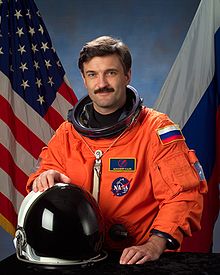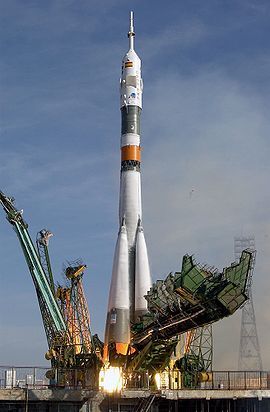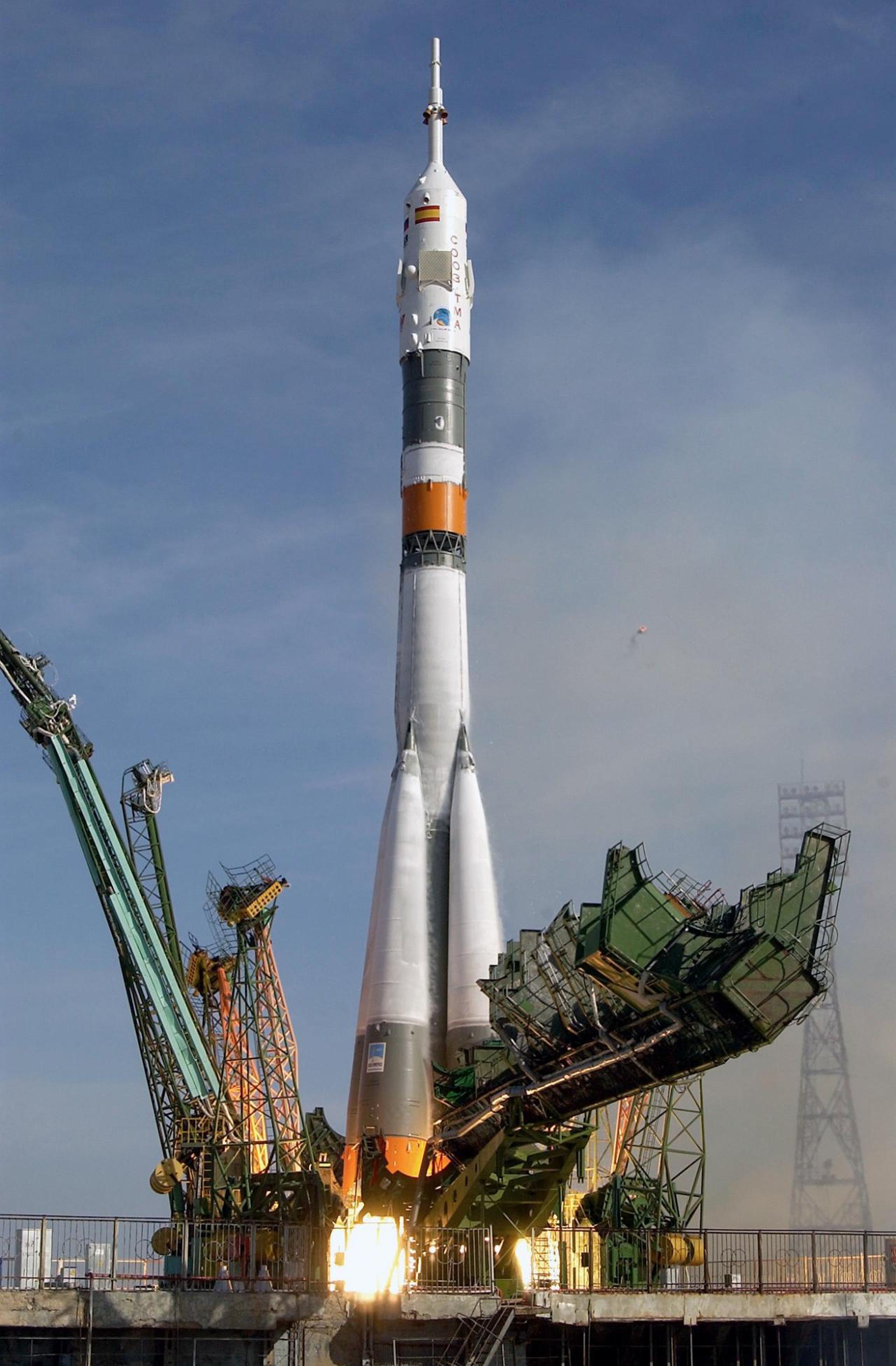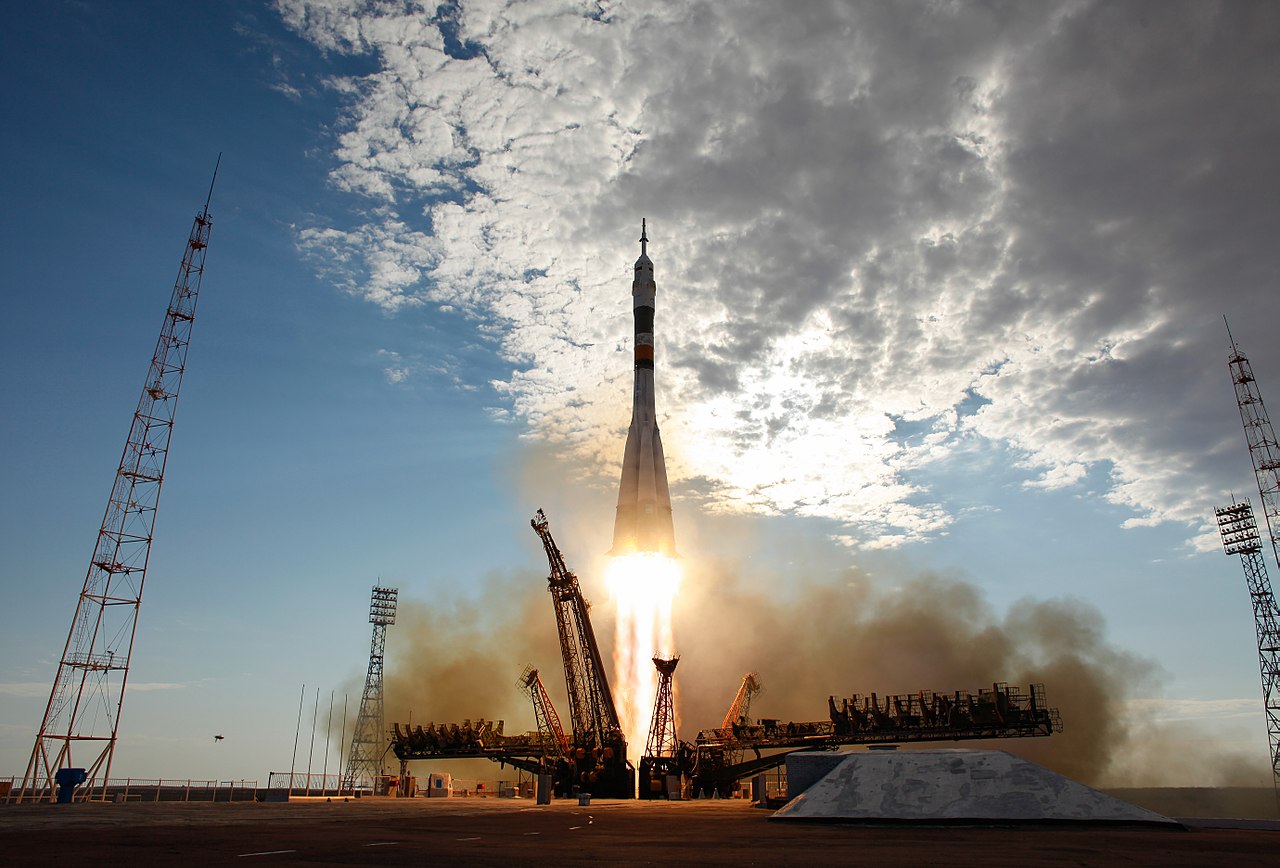Aleksandr Kaleri
Russian - (RFSA)
Active
Date of Birth: May 13, 1956
Age: 69
Aleksandr Yuriyevich "Sasha" Kaleri (Russian: Александр Юрьевич Калери; born Jūrmala, Latvian SSR, USSR, 13 May 1956) is a Russian cosmonaut and veteran of extended stays on the Mir Space Station and the International Space Station (ISS). Kaleri has most recently been in space aboard the ISS serving as a flight engineer for the long duration Expedition 25/26 missions. He has spent the fourth-longest time in space of any person, the longest time in space of any currently active cosmonaut, and the longest time in space of any person not born in what is now Russia.
Soyuz-U2 | Soyuz TM-14
Soviet Space Program | RussiaBaikonur Cosmodrome, Republic of Kazakhstan
March 17, 1992, 10:54 a.m.
Status: Success
Mission:
Soyuz TM-14 was the 14th mission and the 11th long-duration expedition to Mir space station. It was the first mission after the USSR collapsed, and so became the first Russian space flight. The mission began on March 17, 1992, 10:54:30 UTC, launching Commander Alexander Viktorenko, Flight Engineer Alexander Kaleri and Research Cosmonaut Klaus-Dietrich Flade into orbit. They docked with Mir two days later. During their stay there, cosmonauts performed an EVA, various station repair and maintenance tasks, and carried out scientific experiments in materials research, space technology, astrophysics and earth observation. They were visited by several Progress resupply spacecrafts, and welcomed aboard the Soyuz TM-15 crew. The mission concluded with a safe landing back on Earth on August 10, 1992, 01:05:02 UTC.
Low Earth OrbitSoyuz-U | Soyuz TM-24
Russian Federal Space Agency (ROSCOSMOS) | RussiaBaikonur Cosmodrome, Republic of Kazakhstan
Aug. 17, 1996, 1:18 p.m.
Status: Success
Mission:
Soyuz TM-24 was the 27th mission and the 22nd long-duration expedition to Mir space station. It was also a part of the US/Russian Shuttle-Mir Program. The mission began on 17 August 1996, 13:18:03 UTC, launching Commander Valery Korzun, Flight Engineer Aleksandr Kaleri and Research Cosmonaut Claudie André-Deshays into orbit. They docked with Mir two days later. During their stay there, cosmonauts performed several EVAs and various scientific experiments. Station crew was visited by several Progress resupply spacecrafts, STS-79 and STS-81, and welcomed aboard Soyuz TM-25 with the next expedition crew. The mission concluded with a safe landing back on Earth on March 2, 1997, 06:44:16 UTC.
Low Earth OrbitSoyuz-U | Soyuz TM-30
Russian Federal Space Agency (ROSCOSMOS) | RussiaBaikonur Cosmodrome, Republic of Kazakhstan
April 4, 2000, 5:01 a.m.
Status: Success
Mission:
Soyuz TM-30 was the 39th mission and the 28th long-duration expedition to Mir space station. It was the final human spaceflight to Mir. The mission began on April 4, 2000, 05:01:29 UTC, launching Commander Sergei Zalyotin and Flight Engineer Aleksandr Kaleri into orbit. They docked with Mir two days later. During their stay there, cosmonauts performed an EVA and various maintenance and repair tasks. Station crew was visited by several Progress resupply spacecrafts. The mission was privately funded by MirCorp company, which planned to refurbish and privatize the aging Mir space station, however insufficient funding and investment made these plans impossible to come true. The mission concluded with a safe landing back on Earth on June 16, 2000, 00:44 UTC.
Low Earth OrbitSoyuz-FG | Soyuz TMA-3
Progress Rocket Space Center | RussiaBaikonur Cosmodrome, Republic of Kazakhstan
Oct. 18, 2003, 5:38 a.m.
Status: Success
Mission:
Soyuz TMA-3 begins Expedition 8 by carrying 3 astronauts and cosmonauts to the International Space Station. Russian Commander, cosmonaut Alexander Kaleri alongside Flight Engineers, Michael Foale (NASA) & Pedro Duque (ESA) will launch aboard the Soyuz spacecraft from the Baikonur Cosmodrome in Kazakhstan and then rendezvous with the station. It landed on April 30, 2004, 00:11:15 UTC
Low Earth OrbitSoyuz-FG | Soyuz TMA-01M
Progress Rocket Space Center | RussiaBaikonur Cosmodrome, Republic of Kazakhstan
Oct. 7, 2010, 11:10 p.m.
Status: Success
Mission:
Soyuz TMA-01M begins expedition 25 by carrying 3 astronauts and cosmonauts to the International Space Station. Russian Commander, cosmonaut Aleksandr Kaleri alongside Flight Engineers, Oleg Skripochka (RSA) & Scott Kelly (NASA) will launch aboard the Soyuz spacecraft from the Baikonur Cosmodrome in Kazakhstan and then rendezvous with the station. It landed on 16 March 2011, 7:54 UTC
Low Earth OrbitThe Roscosmos State Corporation for Space Activities, commonly known as Roscosmos, is the governmental body responsible for the space science program of the Russian Federation and general aerospace research. Soyuz has many launch locations the Russian sites are Baikonur, Plesetsk and Vostochny however Ariane also purchases the vehicle and launches it from French Guiana.
Falcon 9
Crew-12
Space Launch Complex 40 - Cape Canaveral SFS, FL, USASpaceX Crew-12 is the twelfth crewed operational flight of a Crew Dragon spacecraft to the International Space Station as part of NASA's Commercial C…
Ariane 64
Amazon Leo (LE-01)
Ariane Launch Area 4 - Guiana Space Centre, French GuianaAmazon Leo, formerly known as Project Kuiper, is a mega constellation of satellites in Low Earth Orbit that will offer broadband internet access, thi…
Vulcan VC4S
USSF-87
Space Launch Complex 41 - Cape Canaveral SFS, FL, USAUSSF-87 will launch two identical Geosynchronous Space Situational Awareness Program (GSSAP) satellites GSSAP-7 and GSSAP-8 directly to a near-geosyn…
Proton-M
Elektro-L No.5
81/24 (81P) - Baikonur Cosmodrome, Republic of KazakhstanElektro-L is a series of meteorological satellites developed for the Russian Federal Space Agency by NPO Lavochkin. They are designed to capture real…
Smart Dragon 3
PRSC-EO2 & 6 satellites
South China Sea (launch location 3) - Haiyang Oriental SpaceportCarried 7 satellites to sun-synchronous orbit, including PRSC-EO2 (Earth observation satellite for the Pakistan government's SUPARCO) & CUHK-1. Detai…





